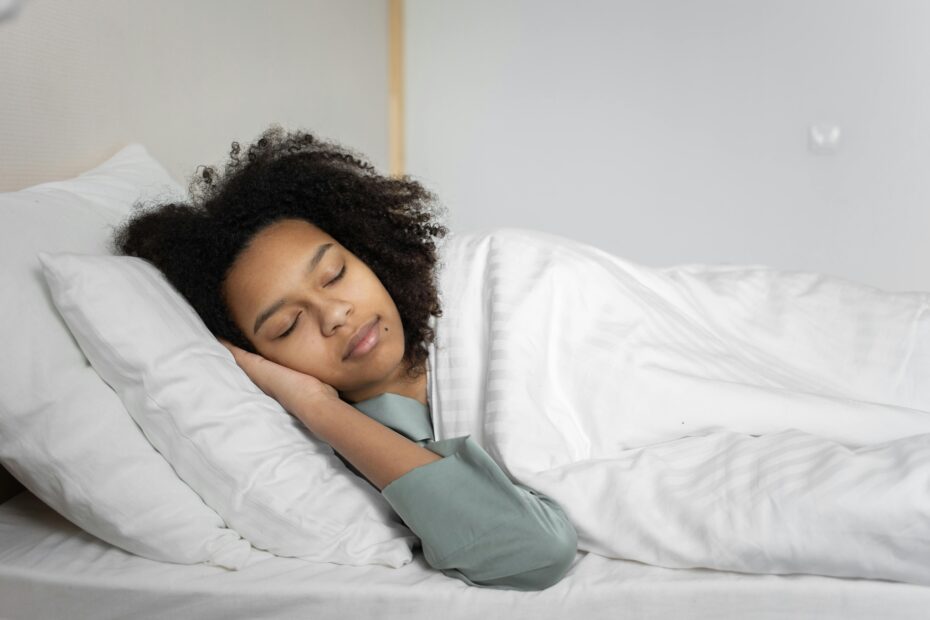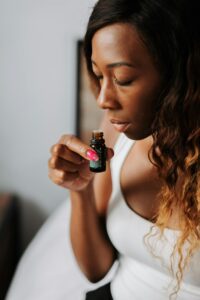In an increasingly fast-paced world, the importance of quality sleep cannot be overstated. Frankly, we live in a world where people brag about sleeping less because it allows them to be more productive. But at what cost to their health? Sleep is crucial for physical health, mental well-being, and overall quality of life. Cellular repair, growth hormone release, processing of emotions, integration of new information, strengthening of the immune system, and metabolic regulation are just a few of the important bodily functions that primarily occur during sleep.
A growing number of people struggle with sleep disorders, insomnia, and poor sleep quality. As people seek relief, they turn to over-the-counter sleep aids like antihistamines or prescription drugs like benzodiazepines, sedative-hypnotics, and orexin receptor agonists. But, for many the risks of these drugs outweigh the benefits, pushing them to purse natural solutions instead. While melatonin is a good option if dosed properly (usually 1 mg or less because more can lead to melatonin tolerance), a simple solution may be essential oils.
Essential oils are highly-concentrated extracts derived from plants, capturing their aroma and potential therapeutic properties. They have been used in traditional medicine for centuries across various cultures. Medical aromatherapy, the practice of using essential oils for therapeutic benefits, is based on the premise that these oils can influence physical and psychological well-being through their aromatic compounds.
Aromatherapy has gained popularity as a non-pharmacological approach to improving sleep due to mounting evidence of how they impact various pathways and mechanisms important for sleep quality. Essential oils are believed to work by stimulating the olfactory system, which is directly linked to the brain’s limbic system—the area that controls emotions, behavior, and long-term memory. This connection suggests that certain scents can trigger relaxation, reduce anxiety, and promote sleep. They can also improve natural melatonin production, stabilize the cardiovascular system, dilate blood vessels, and regulate nervous system activity—all important for sleep. (Reference) (Reference)
Several studies have explored the impact of essential oils on sleep quality. Here are some key findings:
LAVENDER
Lavender (Lavandula angustifolia) is one of the most extensively studied essential oils for sleep. A 2015 study published in The Journal of Alternative and Complementary Medicine found that lavender oil significantly improved sleep quality in college students with self-reported sleep issues. Another study published in Evidence-Based Complementary and Alternative Medicine in 2013 observed that inhaling lavender oil for 15 minutes before bedtime resulted in better sleep quality, more stable mood, and enhanced concentration during the day. Lastly, a review article concluded that lavender is the most commonly used essential oil in sleep research and has the most supportive evidence for its efficacy.
Mechanism of Action: Lavender oil is believed to exert its effects by modulating the parasympathetic nervous system, promoting relaxation, increasing melatonin production, and reducing anxiety. It has also been shown to increase slow-wave sleep, which is the deepest phase of sleep and essential for physical and mental restoration.
BERGAMOT
Bergamot (Citrus bergamia) is often used in combination with other oils for sleep, and its individual effects on sleep are less clear. A study published in the Journal of Clinical Nursing found that a blend of bergamot, lavender, and ylang-ylang improved sleep quality in cardiac rehabilitation patients. It has also been used on its own. An RCT found that inhaling bergamot essential oil significantly improved sleepiness on rising, feeling refreshed on rising, and sleep duration. As a side benefit, depression, anxiety, and stress were all diminished in the bergamot group.
Mechanism of action: Bergamot contains compounds like linalyl acetate and limonene, which have calming and antidepressant effects. It’s thought to influence the nervous system and reduce stress.
SWEET ORANGE
Sweet orange (Citrus sinensis) has been shown in many studies to reduce situational anxiety, so it makes sense that it would be helpful for sleep. Certain medical conditions can reduce sleep quality and duration. A 2023 study found that inhalation of sweet orange essential oil reduced sleep disturbances in school-aged children with lymphoblastic leukemia. The children inhaled two drops placed on gauze for two minutes three times daily (10:00am, 4:00pm, and before bed) three days per week, and the gauze was also placed under the child’s pillow while sleeping. Improvements in sleep duration, anxiety, and insomnia were all observed in comparison to the control group.
Mechanism of Action: Like bergamot, sweet orange oil contains the calming constituent limonene, but researchers believe it also improves sleep by reducing anxiety, regulating limbic system activity, relaxing the body, and reducing cortisol levels.
These are just a few of the essential oils with clinical research supporting their use for enhanced sleep quality. Other essential oils include valerian (Valeriana officinalis), rose (Rosa damascena), chamomile (Matricaria recutitia or Anthemis nobilis), sandalwood (Santalum spp.), vetiver (Vetiveria zizanioides), marjoram (Origanum majorana), and ylang ylang (Cananga odorota). It should also be noted that you may achieve better results by combining two or more of the oils.
Methods of Use
Inhalation: One of the most common methods of using essential oils for sleep is through a diffuser. Adding a few drops of an essential oil to a diffuser disperses the aroma throughout the room, creating a calming environment conducive to sleep. Direct inhalation of essential oils from a tissue or an inhaler is another effective method, particularly when traveling or unable to use a diffuser.
Topical Application: Some people prefer to apply diluted essential oils directly to their skin, such as the wrists, temples, or soles of the feet, and some research suggests this is more effective than simple inhalation. It’s crucial to dilute essential oils with a carrier oil (e.g., coconut or jojoba oil) to prevent skin irritation.
Ingestion: Some essential oils can also be ingested for greater systemic delivery and different results. Lavender essential oil is one that is frequently ingested for its relaxing properties. The best way to consume them is in a softgel or capsule, or directly on or under the tongue for mild oils.
Not all essential oils are safe for everyone. Always consult an informed healthcare professional before using essential oils if you are pregnant, nursing, or have a health condition. Additionally, some essential oils may interact with medications, so it’s essential to be cautious and check a reference such as Appendix G in Medicinal Essential Oils (second edition).
The efficacy of essential oils largely depends on their purity and quality. It’s important to select oils from reputable brands that provide information on sourcing, extraction methods, and purity testing.
Conclusion
Essential oils offer a promising, natural approach to improving sleep quality, with research supporting their effectiveness in reducing anxiety, promoting relaxation, and enhancing overall sleep. Lavender, bergamot, and sweet orange are among the most studied and effective oils for sleep. With proper use, essential oils can be a valuable addition to a holistic approach to better sleep, contributing to improved well-being and a more restful night’s sleep.

